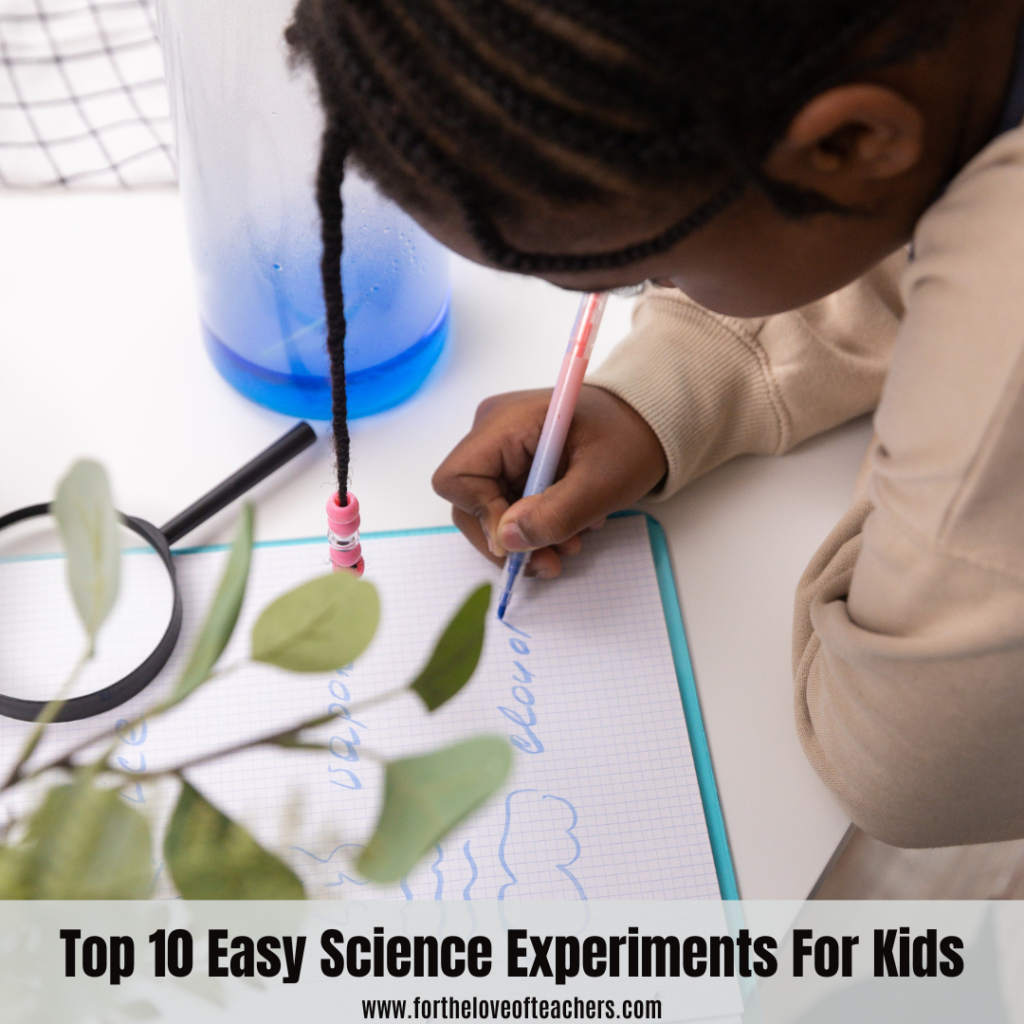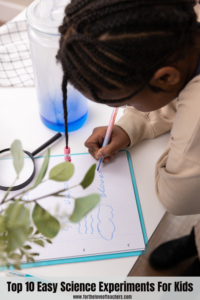Children do a lot of exploring as they learn and grow. Step by step, they gain a better understanding and appreciation of the world around them through their own little investigations and tests. As teachers and parents, it’s vital to encourage a curiosity for all things, including science and scientific-based learning.
While some kids may be too young for beakers and Bunsen burners, it’s still easy to find ways to cultivate an interest in science at an early age. Below, we’ll go over a few simple experiments to do with kids to pique their interest in science as well as some of the benefits of doing so.
Design a Rube Goldberg Machine
We all know kids love to discover and study through touch. From toddlers smashing food into piles to school-age children constructing wonders with building blocks, this desire to tangibly create something (even if it’s just to knock it down) often increases with age. Parents can feed into this approach to learning and incorporate science at the same time with a range of activities.
A great example of this would be to create a Rube Goldberg machine together. Based on the principle of a chain reaction, these building experiments purposefully arrange items or contraptions with an end goal in mind. While there are many elaborate videos of these machines online, your youngster’s model doesn’t have to be extravagant to get the point across. You could start off with marbles, blocks, or balloons and increase the chain as you go.
Play a Game of Measuring Rubber Band Distances
In science, there is an emphasis on having a structured investigation to verify the outcome. That means carefully recording the data, taking multiple measurements, comparing the results, and so on. You can duplicate this process on a smaller scale by blending scientific experimentation with play through a game of shooting rubber bands. All you need is just a few rubber bands, a ruler, and a way to write down the information.
Carry out the “investigation” by taking turns shooting rubber bands, measuring the distance they travel, and repeating the process with various pull-back lengths and band sizes. Be sure to encourage thought-provoking questions while having fun, such as, “Can you predict the distance traveled?” or, “Does aiming it higher make a difference in distance?” These types of questions not only help keep kids engaged but also stimulate their ability to organize thoughts, formulate patterns, share ideas, and construct well-reasoned explanations.
Plant Seeds to Observe the Growth
Scientific and experiential learning delves into the structure and behavior of the natural world around us. One popular, kid-friendly activity you can use to intuitively bring this concept to life is to plant seeds and then observe their growth. Great for instilling patience as well, this pursuit introduces scientific study in an informal setting, which helps to lay a strong foundation for research and experimentation in the future.
To begin, you’ll need active seeds, a pot of freshly aerated soil, something to journal with, and space for the plant to flourish. It’s best to opt for hardy seeds, such as sunflower or pumpkin. Have your junior botanist plant the seed in the pot, place it in indirect sunlight, and water it carefully. Then, record the growth as the seeds germinate and spout. Kids can use measurements, drawings, and even thoughtful descriptions to document the plant’s development and any reactions to environmental changes.
The Influence of Science and Experiential Learning
Early childhood education encompasses a wide range of subjects and skills for little ones to master. Today’s research and practices have made a strong case that science ought to be included since it helps hone the multifaceted process of constructing, understanding, and developing ideas.
Simply put: When nurtured in a supportive environment, the thinking processes and skills of science extend beyond experimentation and can have a significant impact on all areas of a child’s learning.
These three examples merely scratch the surface of science-based activities parents and kids can do at home. If you’d like to see a full list of ten science experiments for young children, check out the accompanying resource from AGS Scientific!
Courtesy Of AGS Scientific
 Author bio: Dr. Michael R. Halvorson is Business Development Manager for AGS Scientific, a laboratory instrument distributor. Dr. Halvorson, who has more than 20 years of experience in the industry, focuses on biochemical toxicology, analytical methods development, sample preparation, laboratory automation, and product development.
Author bio: Dr. Michael R. Halvorson is Business Development Manager for AGS Scientific, a laboratory instrument distributor. Dr. Halvorson, who has more than 20 years of experience in the industry, focuses on biochemical toxicology, analytical methods development, sample preparation, laboratory automation, and product development.
Related Posts:
6 Easy Science Experiments Your Students Can Try at Home
14 STEM Activities Easy to Conduct in a Virtual Classroom
Claim Evidence Reasoning: Using the C.E.R. Model for Scientific Writing in Elementary
Thanks for reading!
If you like it, then pin it!

Christine Weis is a passionate educator, classroom management coach, wife, and mom of two busy boys. She enjoys teaching, writing, and creating resources for teachers.







My son is really into doing science experiments! We just got him a big book of them!
Hhhhmmm….planting seeds and observing them sounds like a good continuous plan. I did this when I was a child and it made me appreciate food so much. I highly recommend it.
What great science experiments for kids! All the kids I know would love to do these experiments.
These are such fun experiments! They’re great for kids to learn, but they’re also fun for adults, too. Great list!
I am always looking for new ways of continuing our kids education at home. I will have to try these fun experiments with my girls.
These science experiments for kids are amazing! The instructions are clear and easy to follow, and the materials needed are easily accessible. Thank you for sharing this resource with us!
That sounds amazing and quite interesting, would love to give this a try with my kids. I bet they would enjoy this.
I actually have tried ,aking epsom salts with the kids and it was so much fun. I will catch up with the rest of the list.
I love the ideas. The kids will be amazed how none of these are magic. It’s all science that we can do at home. Thank you
This is an excellent list of science experiments to do with the kids. Some of these are perfect for the children’s activities on a rainy day!
This is so great. It’s perfect to create an interest in science for kids of all ages. We have a science center downtown for kids that is a huge hit! Great ideas!
We absolutely love science. We have already tried a few of these, but will definitely try the other ones with my kiddos. Thanks for sharing